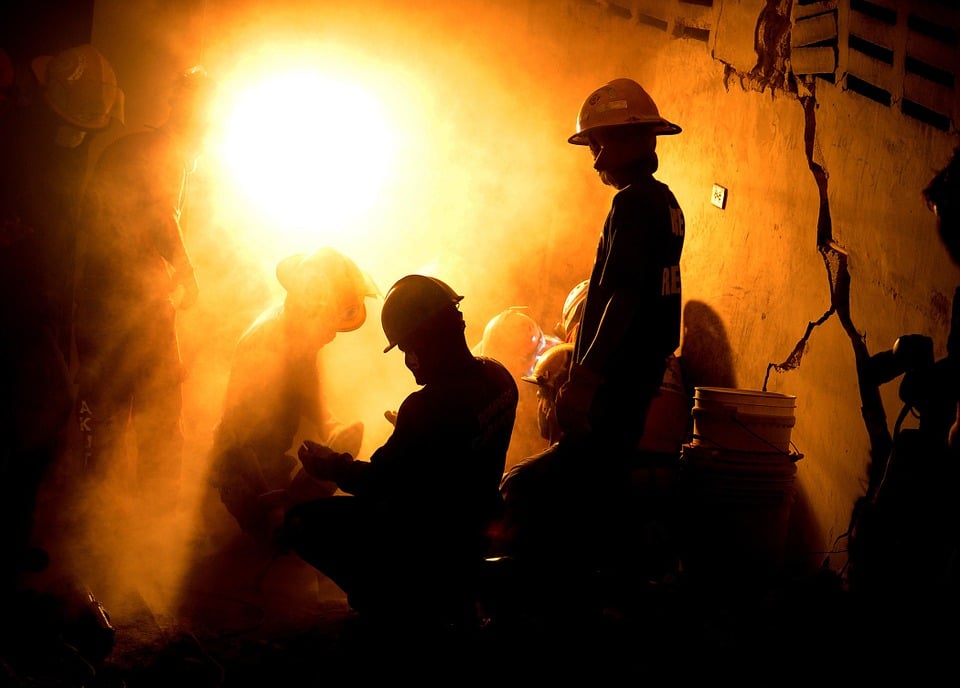I have some friends who have moved their family many times—first with the military and then to pursue international opportunities with the husband’s medical career. They have six kids, and, as parents, I’m sure they held their breath every time they uprooted their brood. But they ended up with some of the most well-adjusted kids that I know.
If you asked my friends they would tell you this: their kids became resilient as a result of their many moves, not as a precursor to them.
Contrary to popular belief, resilience is not an inherent personality trait, but rather an attribute that we each can develop. Remaining calm under pressure and showing flexibility in dealing with setbacks are skills that improve with practice and preparation. The American Psychological Association (APA) reports, “Resilience…involves behaviors, thoughts, and actions that can be learned and developed in anyone.”
According to the APA, mental resilience is created by a combination of factors, including:
- the capacity to make realistic plans and take steps to carry them out
- the ability to adjust those plans as needed
- the power to manage strong feelings and impulses
Take a moment to think about how these skills were exercised during the last time you worked through the inevitable home or property disaster. Dealing with unexpected setbacks, whether it be the third or fourth trip to the home improvement store in one weekend for that simple project that you thought would only take an hour, or dealing with a natural disaster, offers ample opportunity to build resilience.
“Travel is only glamorous in retrospect,” wrote Paul Theroux, the American travel writer and novelist. Traveling makes for flashy posts on social media, but behind-the-scenes, you know there were also soul-crushing moments of stress, delay, unexpected costs, exhaustion, language barriers, or culture shock. These frustrating or disappointing experiences build resilience in those of us who are willing to learn through experience that impatience will not change the weather or shorten a line at customs.
Similarly, snapshots of your cleaning up after a natural disaster or even working through a self-initiated home improvement project fascinate outsiders who have little insight into the stress and exhaustion that you probably experienced between snapshots. The private and wordless moments that test our resilience create the internal scaffolding on which greater resilience can grow.
Disasters come in infinite variety, including hurricanes, heat waves, floods, infectious diseases (I’m talking about you, COVID-19), terrorism, fire, violent crime, and trauma. Even the most thoughtful among us will never be perfectly prepared for every contingency. Most of us are woefully unprepared even for disasters that are quite likely, failing to meet basic recommendations such as preparing 24-hour kits, storing fresh water, or keeping enough liquid assets to maintain our standard of living for three months.
Experts debate the reason why humans, with all their ingenuity and ambitions, are chronically underprepared for natural disasters. Whether it’s the ostrich paradox – the tendency for humans to ignore the imminent danger that stands before them – or some other psychological mechanism, the fact remains that most of us assume that bad things won’t happen to us and so we don’t prepare.
But even if we don’t have those 24-hour kits or water, one ultimately valuable commodity that we all possess to some degree and that will prove equally relevant to any disaster is our native resilience. Do you think you don’t have resilience? Think again. APA research shows that “resilience is ordinary, not extraordinary.” Humans, including you, demonstrate resilience all the time. The capacity for resilience can be enlarged, but resilience does not need to be created ex nihilo, or from nothing. Jobs, relationships, adjusting to disappointments big or small prove that you can bounce back from difficulties.
This post becomes particularly relevant as we face COVID-19. Stay well and healthy, and remember, it is well within you to be resilient, even in times such as these.

